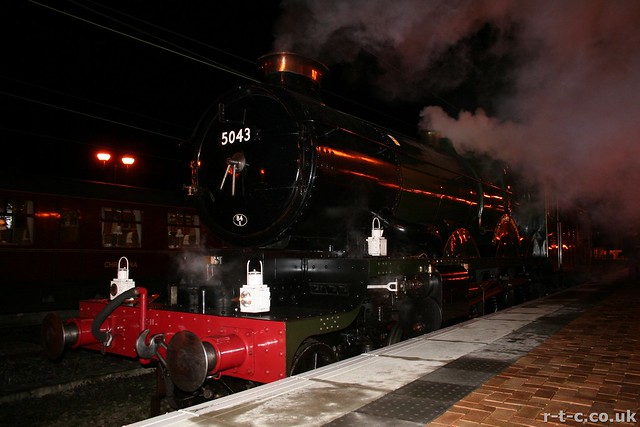Night photography is tricky to perfect and does have an element of trial and error involved. Of all my different cameras I have never found one that does it correctly with automatic setting you have to do this yourself.
Essential equipment
- Tripod
- Camera you are able to set manual exposure and apature
- Shutter release cable
You can do it using time delayed exposure and pressing the shutter release button if you don't have a shutter release cable.
If you are attempting to do this hand held you are making life difficult for yourself. Too many other things to do.
You need to select a station to do this that has a reasonable amount of lighting to do this well as using flash is not a good idea. You could very quickly find yourself thrown off the station.
- Select a suitable night fine and not windy. Rain and wind are added complications you do not need when learning how to do this
- Turn off any shake reduction and auto focus features on your camera. I find auto focus is vot very good in low light, better to do it by eye. Shake reduction can intoduce movement when using a tripod.
- Place your camera on the tripod with shutter release fitted
- Pick a subject that is stood and will be for some time allowing lots of exposures with different settings to be taken
- Set up your camera with the shot you want and focus
- In full darkness with station lights start at 10 seconds F8 exposue
- See how that looks and adjust the shutter speed not the apature. Longer exposure for lighter shorter for darker
You will get a feel for how it is going looking at the preview on the camera. In low light conditions you will find huge variation between differnet camera makes models. You need to find the optimum settings with yours.
Try different settings. Don't worry about the number taken there is very little cost attached to digital images. It is very difficult to take a good night shot from one photo. I have to take several and fine tune as I go. I also find that the exposure is not the same on the camera preview as on the PC when you get them home.
Look at the images on your PC and work out which is best. The exposure of each photo is shown in windows. This will give you a good feel for your starting position on the exposure with the amount of light available.
In your area Penzance in not a pad place to start as you have a lot of terminating trains so they sit for a while. The only problem is the light is very orange there from the elevated road lights. You may need to colour balance the pictures but that is a whole different discussion.
If you want to see some of my efforts see the link below. There are some night shots at Paddington in the earlier months 2011 folder. There are a few in other years as well.
If you want to post some of your attempts quite happy to have a look and try and give some constructive comments.
This is difficult to master but very rewarding when you do.











